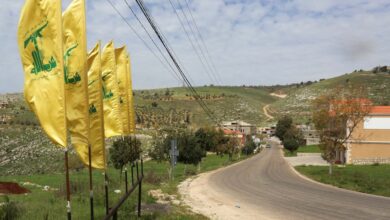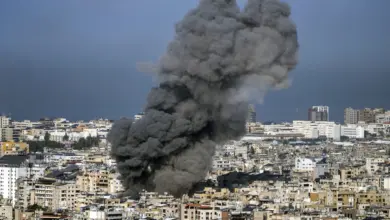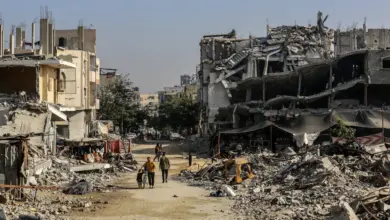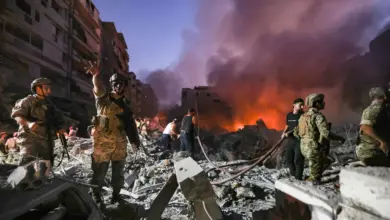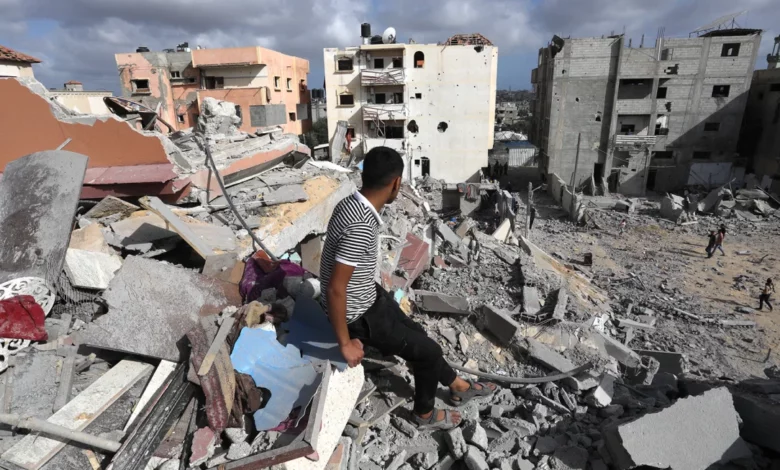
Israel’s military has issued a call for residents of eastern Rafah to “evacuate immediately,” a day after the country’s defense minister told troops inside Gaza to expect “intense action in Rafah in the near future.”
Avichay Adraee, head of the Arab media division of the IDF Spokesperson’s Unit, wrote, “For your safety, the Defense Army urges you to evacuate immediately to the expanded humanitarian area at the checkpoints.”
Adraee made “an urgent call” to people who were residing in “the municipality of Al-Shawka and in the neighborhoods – Al-Salam, Al-Jneina, Tiba Zaraa, and Al-Bayouk in the Rafah area.”
Israel’s constant bombardment of Gaza since October 7 has devastated the besieged enclave, reducing whole neighborhoods to rubble, throttling food, fuel and water supplies, and forcibly displacing many of those seeking shelter in Rafah multiple times in the seven months of war.
Aid agencies have been warning Israel against launching a full-scale ground invasion of Rafah, saying “any ground operation would mean more suffering and death” for the 1.2 million displaced Palestinians sheltering in and around the strip’s southernmost city, OCHA spokesperson Jens Laerke told journalists in Geneva.
Northern Gaza is already experiencing a “full-blown famine” which is rapidly spreading across the strip, the World Food Programme warned over the weekend.
Colonel Nadav Shoshani, the IDF’s international spokesperson, said in a briefing Monday that it was a “limited scope operation to temporarily evacuate” and “not wide-scale evacuation.”
Israel has repeatedly signaled plans to send troops into Rafah, a southern city on the border with Egypt, where more than a million displaced Palestinians are believed to have taken refuge since October 7.
Israeli Defense Minister Yoav Galant told troops Sunday morning inside Gaza to expect “intense action in Rafah in the near future, and in other places all over the strip,” because – as he put it – Hamas does not intend to reach an agreement on hostages and a ceasefire.
The announcement came a day after Israel closed the Kerem Shalom border crossing to humanitarian trucks after it was hit by at least 10 rockets on Sunday morning, according to the IDF. The crossing has been central to getting aid into Gaza.
Three IDF soldiers were killed and three critically injured in the rocket attack which was claimed by Hamas’ military wing, the Al-Qassam Brigades.
It was not clear whether the call for evacuation was in response to the attack at Kerem Shalom, and the border crossing remained closed on Monday.

Flyers dropped from the air
The IDF would also not put an exact timeframe for how long people in eastern Rafah have to evacuate or offer assurances that the area they would move to would not be shelled.
“People have days at least to move. As I said, we’re having real-time situational assessments and assessing the situation,” said the IDF’s Shoshani.
He said the current evacuation impacts about 100,000 people.
When asked by CNN about the operational reason for the move Shoshani said, “It’s part of our of our plans to dismantle Hamas, and as I said, we had a violent reminder of their presence and their operational abilities and welfare yesterday and as part of our plans to dismantle from us and to bring back our hostages.”
Previous orders from Israel to evacuate parts of Gaza ahead of military operations have been met with criticism from the United Nations and humanitarian groups, which have repeatedly said there is no safe space in the strip for people to flee to.
The IDF said it dropped flyers into eastern Rafah to residents and people sheltering “in the Rafah Camp, the Brazil Camp and the neighborhoods Al-Shabura and Al-Zohour” to evacuate as “remaining in these areas puts your lives in danger.”
It directed residents toward Al-Mawasi, a narrow, barren, coastal strip to the west of Khan Younis, that has been designated by Israel as an “expanded humanitarian area.”
However, there is little relief from Israeli bombs or respite from the humanitarian catastrophe throughout the strip, where malnutrition is rapidly spreading and more than 34,600 people have been killed since October, according to Palestinian authorities in Gaza.
In January, 14 people including children were killed by an Israeli airstrike on a house in Al-Mawasi, local authorities said.
And areas once designated safe zones by the Israeli military have been decimated once forces move in. Early in the war, the Israeli military designated Khan Younis as a safer zone and told residents from northern Gaza to seek shelter there. But as the IDF pushed to the south, Khan Younis became its next focus and the city was left devastated.
This is a developing story and will be updated.

